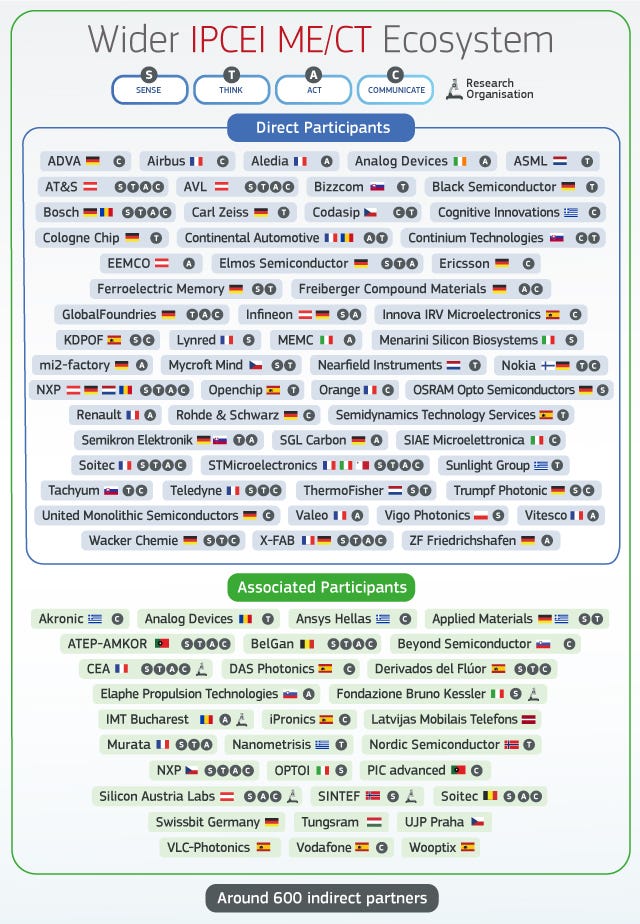EU okays €8.1 billion worth of state aid for microelectronics R&DEU okays €8.1 billion worth of state aid for microelectronics R&D
The EU has given the green light for up to €8.1 billion in state aid to be ploughed into R&D linked to chip design and manufacture, with a particular focus on 5G and 6G communication, autonomous driving, AI and quantum computing.
June 9, 2023

The EU has given the green light for up to €8.1 billion in state aid to be ploughed into R&D linked to chip design and manufacture, with a particular focus on 5G and 6G communication, autonomous driving, AI and quantum computing.
The European Commission’s thumbs-up means that 14 countries will be permitted to put the money into 68 projects involving 56 companies – some of them big names in the telecoms industry as well as SMEs and start-ups – in the areas of microelectronics and communications technology. The projects should unlock an additional €13.7 billion in private funding, it said.
The umbrella project is designated as an Important Project of Common European Interest (IPCEI). It’s the sixth IPCEI to be approved under state aid rules and is the largest to date, explained Margrethe Vestager, EVP in charge of competition policy at the European Commission.
“Microchips are the backbone of innovation and of Europe’s industrial competitiveness in a digital world. The green and digital transitions require new, advanced technological solutions,” Vestager said. “And this is why we must increase the Europe’s own chips research, development and production capabilities.”
The production of chipsets inside Europe has been on the EU’s radar for some time, and this IPCEI feeds into that, as well as other key initiatives in Brussels linked to supporting digital transformation and green technologies.
As long ago as March 2021, driven by a desire for increased technology sovereignty at a time when international trade spats were having an impact on the semiconductor space and others across the globe, the Commission unveiled its target of producing 20% of the world’s semiconductors, in value terms, by 2030, up from 10% in 2020.
Early last year it unveiled the European Chips Act, a €43 billion microchip manufacturing plan – made up of public and private funding – but progress has been a little slow; it wasn’t until April this year that the European Parliament and member states reached agreement on the act, and there are still hoops to be jumped through.
Vestager referred to the act in her comments on the new IPCEI, using it as another example of an initiative that will support R&D in the microelectronics space.
All 68 projects under the IPCEI are highly ambitious, as they aim at developing technologies that go beyond what the market currently offers and will allow major improvements, notably in the areas of sensors, high performance processors, microprocessors including AI, actuators and communication means for secure data exchange, the Commission explained.
The first novel products may be on the market as early as 2025, with the overall project due for completion in 2032, it said. The IPCEI will create 8,700 jobs directly, in addition to many more indirect roles.
Notable companies involved include Ericsson, Nokia, Orange, Rohde & Schwarz, and STMicroelectronics, but there are many others (see below).
“We thoroughly assessed the project and we have concluded that the proposed public support is appropriate. It is necessary to give the companies involved in this IPCEI the incentive to engage in truly ambitious research and innovation,” Vestager said.

Get the latest news straight to your inbox. Register for the Telecoms.com newsletter here.
About the Author
You May Also Like










.png?width=300&auto=webp&quality=80&disable=upscale)


_1.jpg?width=300&auto=webp&quality=80&disable=upscale)